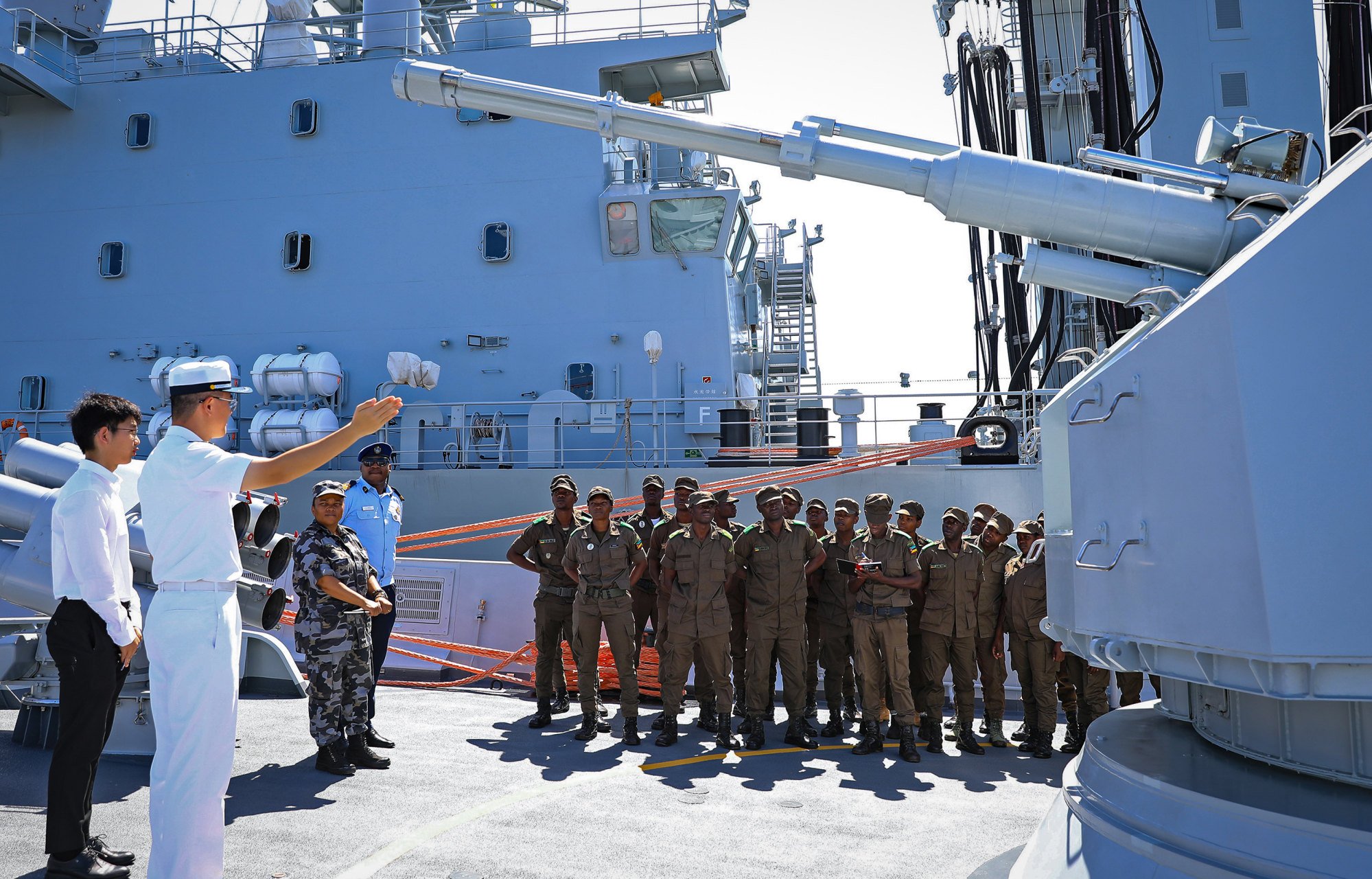On March 23, the ships arrived in Dar es Salaam, Tanzania, for a five-day stopover before heading to the port of Maputo in Mozambique on April 1 for another five-day tour.
Before that, the 45th naval fleet had completed an anti-piracy patrol in the Gulf of Aden and the waters off Somalia.
It has since been replaced by the 46th Chinese naval escort task force, which includes the Type 052D guided-missile destroyer Jiaozuo, the Type 054A missile frigate Xuchang, and the Type 903A replenishment vessel Honghu, with over 700 crew members including dozens of special forces personnel and two helicopters on board.
Shinn said that, except for routine calls that continued throughout the pandemic in Djibouti in connection with the anti-piracy patrol, port visits in Africa were paused in 2020 at the start of the Covid-19 pandemic.
This was followed by naval visits at ports in West Africa in July 2023, he said, and now the current visits to Tanzania, Mozambique – and probably a few more African ports before this series is finished.
Shinn said some of these visits have involved exercises with other navies and often gifts of low-cost items such as sports equipment are given.
“[The visits] provide positive publicity for both China and the African host,” Shinn said.
He noted that most of these countries also welcome visits by naval ships from Western nations, allowing leaders to demonstrate their “non-alignment”.

“China wants to cement the security relationship with African governments and port cities so that it can access them quickly in times of need,” Shinn said.
Paul Nantulya, a China specialist at the National Defence University’s Africa Centre for Strategic Studies in Washington, said the visit of the 45th naval fleet to Tanzania and Mozambique “forms part of what I like to call the PLA’s multipurpose employment of its naval task forces”.
Nantulya said the missions began in 2008 and have grown in duration, sophistication and tasks – with their main mission being anti-piracy patrols, primarily in the Gulf of Aden.
Another benefit for the PLA Navy, Nantulya said, is the operational experience it gains, as well as the ability to test and field new equipment.
“All the assets China deploys into African waters are new or upgraded. The operational experience is critical as China has not fought a war since 1979,” Nantulya said.
And while not all the operations China conducts in African maritime domains are necessarily transferable to high intensity combat scenarios, he said they are better than nothing.
Meanwhile, there are also benefits for the African countries. They get to demonstrate their strategic and diplomatic ties to China, expose their forces to foreign military practices and doctrine, and they get to achieve a level of interoperability, which is also a benefit to China, Nantulya said.
Naval visits are a recognised role for navies as they spread goodwill and show military prowess, according to Francois Vrey, a professor emeritus of military science and a research coordinator at the Security Institute for Governance and Leadership in Africa at South Africa’s Stellenbosch University.
They also give an indication of China’s diplomatic intent in various political situations, Vrey added.
He said the Chinese naval visits also show a presence on Africa’s east coast, but the programme for the visits are low-key and not in the same category as, for example, the Mosi exercise in South Africa.
“Navies are such versatile instruments of power and influence if one looks beyond the war-fighting domain,” he said.















